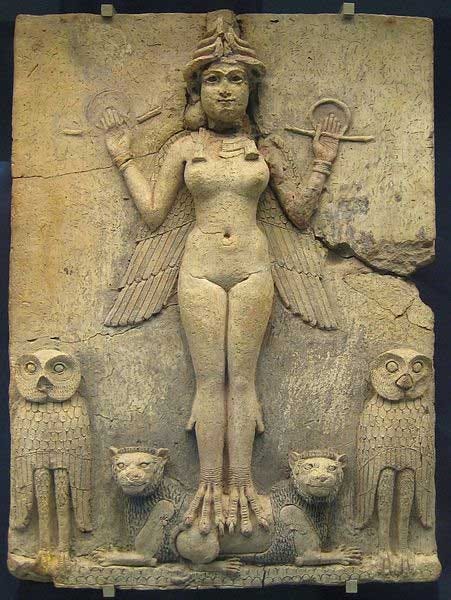Chasing Shadows of Mesopotamia: Assyrian Ghost Tales & Their Epic Exorcisms
Mesopotamian mysteries have long captivated the West. Among them, Assyrian spirit tales stand out. They believed that unsettled spirits would come back from the afterlife, often due to improper burials or unnatural deaths, to haunt and even possess the living. Complex exorcisms were essential to fend off these vengeful spirits. Dive into Assyrian specter legends, and the age-old fear of ghosts suddenly makes perfect sense.
Haunts & Hunger: Meals of Dust and Puddles of Gloom
The ancient Assyrians, along with their Mesopotamian counterparts, held that after death, one became a gidim or etemmu, the Sumerian and Akkadian terms for ghosts residing in the underworld. This bleak realm was far from appealing: the "food" barely better than soil, and murky waters as drink. Though they dwelled eternally there, these souls still craved real food and drink, sourced from offerings by their living kin. Neglect this duty, and the dead faced an endless hunger and thirst.

Some spirits, however, weren't confined to this dreary domain. Unjust or unusual deaths, or flawed burials, gave them a pass back to the living world, all in a bid to set things straight. Once their mission was accomplished, back to the shadows they went.
These returning spirits, usually vengeful due to life or death's wrongs, weren't welcome visitors. They'd spook or even take over the bodies of kin or foes, making an appearance as eerie visions or by creeping into the living through the ears. Hearing a ring or feeling pain in one's ear might just mean a ghostly visit.
Ghostbusting 101: The Assyrian Guide
The primary antidote to these haunts was simple: rectify the committed wrong. Exorcist-doctors would probe for any misdeeds against the spirits or deities that might have instigated the spectral troubles.
Assyrian exorcism wasn't just a mere ritual; it combined magic, chants, and calls to gods like Shamash, the sun and justice deity of Mesopotamia. With his nightly underworld visits to judge souls, invoking Shamash during ghostly disturbances seemed apt, hoping he'd intervene to calm or control the spirits.

Ghosts Who Fooled the Divine
While most ghosts had legit grievances or aims, some tales spoke of those who duped the underworld gods to emerge without reason, only to wreak havoc among the living.
These mischievous spirits, when caught, faced underworld punishments—stripped of their honors and offerings, which then went to forgotten souls. Exorcising these naughty netherworld escapees ranged from simply sending them back to settling complex injustices.

Moral Specters: Ghostly Lessons for the Living?
Assyrian ghost narratives echo themes from global tales—from unresolved spirit business in ancient China and Greece to spirit-induced illnesses needing exorcism across various cultures.
Reflecting real-life concerns, ancient tales highlighted the need for kin care, as elders relied on family in the absence of systems like social security. With beliefs that the dead suffered without proper family care, tales of punishing spirits might just have been age-old life lessons in loyalty and duty.

Top Image: Detail of a bronze statuette of Pazuzu, circa 800 BC - circa 700 BC. Pazuzu was an Assyrian evil spirit believed to frighten away other evil spirits - protecting humans against plagues and misfortunes. Source: CC BY SA 3.0
By Caleb Strom
References
Scurlock, Jo Ann. Magico-medical means of treating ghost-induced illnesses in ancient Mesopotamia . Vol. 3. Brill Academic Pub, 2006.
Stol, Marten. "Magico-Medical Means of Treating Ghost-Induced Illnesses in Ancient Mesopotamia." Bulletin of the History of Medicine 81.3 (2007): 652-653.
Poo, Mu-chou. "The Concept of Ghost in Ancient Chinese Religion." Religion and Chinese Society 1 (2004): 173-191.
Johnston, Sarah Iles. Restless dead: Encounters between the living and the dead in ancient Greece . University of California Press, 2013.


With no scientific explanation for anything that happened in their lives & thinking that dreams were another world they were really trapped by their own imaginations' products . I remember being very scared as a child at night, until I grew old enough to talk to myself & realize that just by entertaining such thoughts you allow them to take over your brain & frighten you. IOW you CREATE that very thing that then scares you ! What these ancient civilizations appear to have done is basically mass hysteria over stuff they didn't understand., so they created strange beings as the explanations of those ideas that scared them.
We cannot just blame the Christians for fear-mongering hell, satan, devil etc. It seems the fear-mongering craft is very ancient. Or is this like vcragain seems to be suggesting that us humans have always had dark fear, the response of being ‘scared’ or the unknown or what was not understood. Rather than face it head on, because it’s really harmless, blame something or someone else that has to be banished. I suppose this process is part of ‘growing up’?